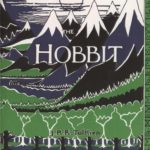Fantasy Writing With A Christian Worldview or Beating A Dead Horse Part I
Much of what we’ve discussed at Spec Faith is whether {enter Shakespearen-themed music here} to write or not to write to the secular market, or if you prefer to the lost. And how do we do that when writing science fiction or fantasy? If we are writing to the secular, should we portray overt Christianity, be subtle, or just write a darn good story and not quench our Christian worldview? I hope you’re not tired of this subject because it is a conundrum for many Christian science fiction and fantasy writers and not easily forgotten or answered.
Our ultimate goal should be to write such a truly compelling story with magnificent prose that readers want to keep reading even if they cringe at anything that hints at Christianity. (Though I find it quite interesting many readers don’t even recognize the Christian elements even when it’s blatant)
Wouldn’t that be a dream come true?
There must be authors that have already reached this standard. I’m interested to hear your favorites because my TBR pile keeps growing. I’ll never catch up.
One such author that, in my opinion, has accomplished this is Stephen R. Lawhead. I found some interesting review comments regarding Christianity in his book Taliesen of the Pendragon Cycle series. This is part of only one such review.
“. . . While it seems eminently reasonable to portray Arthur’s forebears as wrestling with their conversion from Celtic pagan beliefs to Christianity (why else would they have ultimately been so obsessed with the recovery of the Holy Grail?), I believe that Lawhead fell into the trap of presenting Christianity as not only Taliesin’s choice but also his choice, the right choice and the only choice. My opinion only, of course, but I believe the novel would have been much more effective stopping at the simple portrayal of Christianity as the historical choice that Taliesin made for himself and his family! Somewhere in the final third of the novel, zealotry slipped over the top and I began to feel like Lawhead was trying to preach to me through Taliesen and, frankly, I just didn’t care for it!
The writing was so darn good, I can’t bring myself to give the novel a failing grade outright but I’m left with a disturbing feeling of ambivalence as to whether I’ll read “Merlin”, the next novel in the entire five novel series “The Pendragon Cycle”. We’ll see …
You can read Paul Weiss’s full review here .
“The writing was so darn good. . .”
And that is our goal.
I did not include the first part of his review, but Mr. Weiss began raving about Taliesen despite his apparent dissatisfaction with an overt Christian message. My point is that should we write to this standard, we can write what we want—Christian themes or parallels or allegories included. If excellent writing and storytelling is always the “bottom line” in any genre and any story, then it is no less true for a Christian-themed story written to a non-Christian market. Lawhead’s books are proof of this. Any other books/authors you feel meet this standard?
On September 28th and 29th, I’ll be posting an interview with Stephen Lawhead on Favorite Pastimes historical blog. I hope you join me for that.
Oh, and I’m not sure there is actually a Part 2, but that seems to be the going trend so I’ll do my part.
Blessings!
Beth.







































